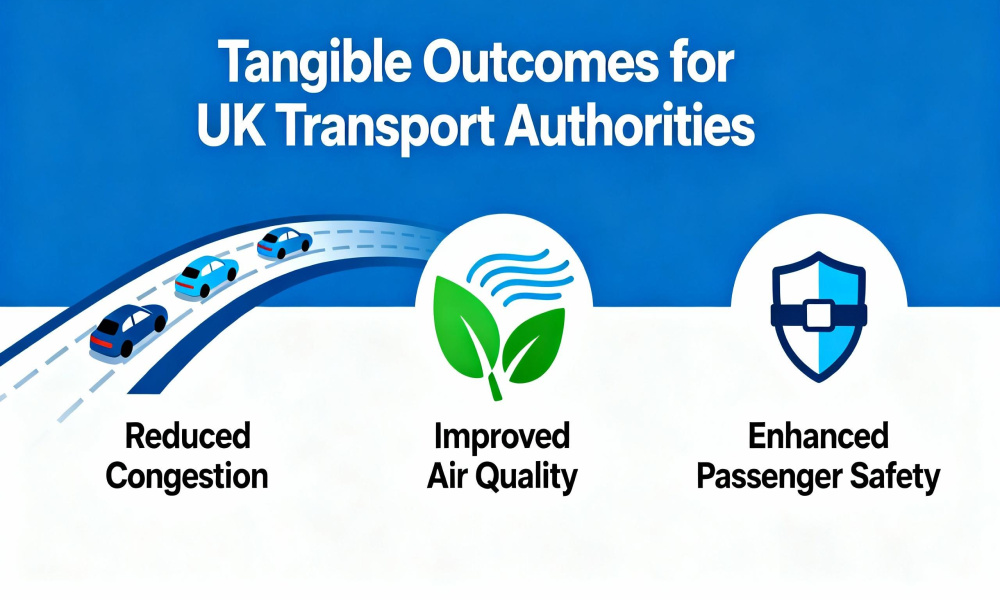
The United Kingdom's Intelligent Transport Systems (ITS) market is in a state of dynamic transformation, driven by ambitious government strategies, significant public and private investment, along with a pressing need to create a more efficient, sustainable and resilient transport network. For foreign ITS companies, the UK presents a lucrative but complex market, characterised by a sophisticated procurement landscape, evolving post-Brexit standards and the imperative for deep local understanding. With a market size estimated to reach over £3 billion by 2030, the opportunities for innovative solutions in areas such as Connected and Automated Vehicles (CAVs), Mobility as a Service (MaaS) and data-driven traffic management are substantial. However, navigating the intricacies of this mature market requires careful planning and a strategic approach.
The UK's commitment to advancing its transport infrastructure is underscored by key national initiatives. The "Future of Transport" program, spearheaded by the Department for Transport, sets out a vision for a tech-enabled transport system that is cleaner, greener and more user-centric. A cornerstone of this vision is the widespread adoption of ITS to tackle congestion, which costs the UK economy billions annually, and to meet ambitious net-zero emissions targets. National Highways, the government-owned company responsible for the country's strategic road network, is a major driver of ITS deployment through its "Digital Roads" strategy. This long-term vision aims to create a network that is digitally connected, enabling real-time communication between vehicles and infrastructure, predictive maintenance and enhanced safety through advanced driver-assistance systems and eventually, full autonomy.
This forward-looking agenda is creating a fertile ground for a wide array of ITS solutions. There is strong demand for advanced traffic management systems that can optimize traffic flow in real-time, reducing both congestion and emissions. The roll-out of 5G is further accelerating the potential for connected vehicle technologies, with numerous trials underway across the country. Furthermore, the UK is a key market for the burgeoning MaaS sector, with cities like London, Manchester, and Birmingham actively exploring and implementing integrated transport solutions that offer users seamless journey planning and payment across multiple modes of transport.
Despite the significant opportunities, foreign ITS companies wishing to enter the UK market face a number of formidable challenges. Chief among these is the complex and often lengthy public procurement process. While the UK government is a signatory to the World Trade Organization's Government Procurement Agreement (GPA), which provides a framework for fair and transparent competition, the reality on the ground can be daunting for newcomers. Tenders are often highly detailed and require a deep understanding of UK-specific standards and operational requirements. The recent introduction of the Procurement Act 2023 aims to simplify and streamline this process, placing a greater emphasis on value for money over the lowest cost. However, its practical impact on foreign bidders is still unfolding and building relationships with public sector bodies and understanding their long-term strategic goals remains crucial.
The legacy of Brexit has introduced a new layer of complexity. While the UK has largely maintained alignment with European standards in the transport sector to ensure interoperability, the potential for future divergence creates uncertainty. Foreign companies must stay abreast of any changes to regulations and certification requirements. The UK has replaced the EU's CE mark with its own UKCA (UK Conformity Assessed) marking for certain products and while transitional measures have been in place, ensuring compliance is an ongoing consideration. Data protection is another critical area, with the UK's GDPR framework closely mirroring its EU counterpart. However, international data flows are subject to adequacy decisions and companies must ensure their data handling practices are fully compliant with UK law.
Beyond the regulatory and procurement hurdles, a lack of local knowledge can be a significant barrier to entry. Understanding the unique transport challenges of different UK regions, from the dense urban environment of London to the rural landscapes of Scotland and Wales, is essential for tailoring effective solutions. Across England, a tapestry of local authorities are responsible for local highways in their areas, whilst the devolved administrations in Scotland, Wales and Northern Ireland have their own transport strategies and priorities. Transport Scotland, for instance, has a strong focus on sustainable transport and is actively investing in ITS to support its net-zero ambitions. Foreign companies that can demonstrate an understanding of these regional nuances and align their offerings with local policy objectives are more likely to succeed.
Intellectual property protection is another key consideration. The UK has a robust legal framework for protecting IP rights and foreign companies should ensure they have taken the necessary steps to safeguard their innovations when entering the market.
For foreign ITS companies with a strategic and well-informed approach, the UK market remains a prize worth pursuing. Building strong local partnerships is often the most effective route to market. Collaborating with established UK-based companies, academic institutions, or consultants can provide invaluable local knowledge, help navigate the procurement landscape and build credibility with public sector clients.
A clear and demonstrable value proposition is also essential. With a mature market and a number of established domestic and international players, new entrants must be able to clearly articulate how their solutions are more innovative, cost-effective or better suited to the UK's specific needs than a competitor's. A focus on delivering tangible outcomes, such as reduced congestion, improved air quality or enhanced passenger safety, will resonate strongly with UK transport authorities.

Finally, a long-term commitment to the UK market is crucial. Success is unlikely to be instantaneous and requires a sustained effort to build relationships, understand the evolving policy landscape and adapt solutions to meet the changing needs of the UK's transport network. Those who invest the time and resources to do so will find a market that is not only profitable but also at the forefront of the global transition to a smarter, more sustainable transport future.
See the video